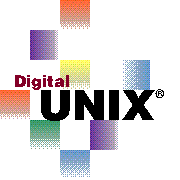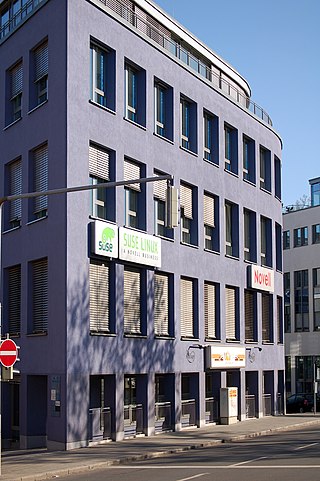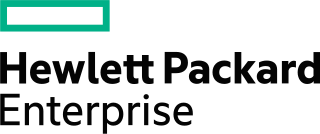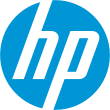
The Common Desktop Environment (CDE) is a desktop environment for Unix and OpenVMS, based on the Motif widget toolkit. It was part of the UNIX 98 Workstation Product Standard, and was for a long time the Unix desktop associated with commercial Unix workstations. It helped to influence early implementations of successor projects such as KDE and GNOME desktop environment, which largely replaced CDE following the turn of the century.

Itanium is a discontinued family of 64-bit Intel microprocessors that implement the Intel Itanium architecture. The Itanium architecture originated at Hewlett-Packard (HP), and was later jointly developed by HP and Intel. Launched in June 2001, Intel initially marketed the processors for enterprise servers and high-performance computing systems. In the concept phase, engineers said "we could run circles around PowerPC, that we could kill the x86." Early predictions were that IA-64 would expand to the lower-end servers, supplanting Xeon, and eventually penetrate into the personal computers, eventually to supplant RISC and complex instruction set computing (CISC) architectures for all general-purpose applications.

OpenVMS, often referred to as just VMS, is a multi-user, multiprocessing and virtual memory-based operating system. It is designed to support time-sharing, batch processing, transaction processing and workstation applications. Customers using OpenVMS include banks and financial services, hospitals and healthcare, telecommunications operators, network information services, and industrial manufacturers. During the 1990s and 2000s, there were approximately half a million VMS systems in operation worldwide.

HP-UX is Hewlett Packard Enterprise's proprietary implementation of the Unix operating system, based on Unix System V and first released in 1984. Current versions support HPE Integrity Servers, based on Intel's Itanium architecture.

Tru64 UNIX is a discontinued 64-bit UNIX operating system for the Alpha instruction set architecture (ISA), currently owned by Hewlett-Packard (HP). Previously, Tru64 UNIX was a product of Compaq, and before that, Digital Equipment Corporation (DEC), where it was known as Digital UNIX.
Distributed Component Object Model (DCOM) is a proprietary Microsoft technology for communication between software components on networked computers. DCOM, which originally was called "Network OLE", extends Microsoft's COM, and provides the communication substrate under Microsoft's COM+ application server infrastructure.

Novell, Inc. was an American software and services company headquartered in Provo, Utah, that existed from 1980 until 2014. Its most significant product was the multi-platform network operating system known as Novell NetWare.
The Open Software Foundation (OSF) was a not-for-profit industry consortium for creating an open standard for an implementation of the operating system Unix. It was formed in 1988 and merged with X/Open in 1996, to become The Open Group.
HP OpenView is the former name for a Hewlett-Packard product family that consisted of network and systems management products. In 2007, HP OpenView was rebranded as HP BTO Software when it became part of the HP Software Division. The products were available as various HP products, marketed through the HP Software Division. HP Software became part of HPE after the HP/HPE split and HPE Software was eventually sold to MicroFocus.

The Digital Equipment Computer Users' Society (DECUS) was an independent computer user group related to Digital Equipment Corporation (DEC). The Connect User Group Community, formed from the consolidation in May, 2008 of DECUS, Encompass, HP-Interex, and ITUG is the Hewlett-Packard’s largest user community, representing more than 50,000 participants.

SUSE is a German-based multinational open-source software company that develops and sells Linux products to business customers. Founded in 1992, it was the first company to market Linux for enterprise. It is the developer of SUSE Linux Enterprise and the primary sponsor of the community-supported openSUSE Linux distribution project. While the openSUSE "Tumbleweed" variation is an upstream distribution for both the "Leap" variation and SUSE Linux Enterprise distribution, its branded "Leap" variation is part of a direct upgrade path to the enterprise version, which effectively makes openSUSE Leap a non-commercial version of its enterprise product.
Integrity Virtual Machines is a hypervisor from Hewlett Packard Enterprise for HPE Integrity Servers running HP-UX. It is part of HP's Virtual Server Environment suite, and is optimized for server use.

Interex EMEA was the EMEA HP Users Organisation, representing the user community of Hewlett-Packard computers.

3PAR Inc. was a manufacturer of systems and software for data storage and information management headquartered in Fremont, California, USA. 3PAR produced computer data storage products, including hardware disk arrays and storage management software. It became a wholly owned subsidiary of Hewlett Packard Enterprise after an acquisition in 2010.

Unix is a family of multitasking, multi-user computer operating systems that derive from the original AT&T Unix, whose development started in 1969 at the Bell Labs research center by Ken Thompson, Dennis Ritchie, and others.
Eucalyptus is a paid and open-source computer software for building Amazon Web Services (AWS)-compatible private and hybrid cloud computing environments, originally developed by the company Eucalyptus Systems. Eucalyptus is an acronym for Elastic Utility Computing Architecture for Linking Your Programs To Useful Systems. Eucalyptus enables pooling compute, storage, and network resources that can be dynamically scaled up or down as application workloads change. Mårten Mickos was the CEO of Eucalyptus. In September 2014, Eucalyptus was acquired by Hewlett-Packard and then maintained by DXC Technology. After DXC stopped developing the product in late 2017, AppScale Systems forked the code and started supporting Eucalyptus customers.
Encompass, the Enterprise Computing Association, was the original computer user group for business customers of Hewlett-Packard. Encompass's history began with DECUS, founded in 1961, for customers of the Digital Equipment Corporation, which was acquired in 1998 by Compaq. The U.S. Chapter incorporated as the user group Encompass U.S.
Advanced Systems Concepts, Inc. (ASCI) provides job scheduling, scripting and command language, and data replication and recovery software. Founded in 1981 in Hoboken, the company is now based in Morristown, New Jersey. Initially, the company was focused on the development of products for former Digital Equipment Corporation's (DEC) OpenVMS operating system (OS) product; now they can be used across different platforms and technologies, including Microsoft Windows, Linux, UNIX, and OpenVMS. Its products include ActiveBatch, XLNT, and RemoteSHADOW.

HP Cloud was a set of cloud computing services available from Hewlett-Packard that offered public cloud, private cloud, hybrid cloud, managed private cloud and other cloud services. It was the combination of the previous HP Converged Cloud business unit and HP Cloud Services, an OpenStack-based public cloud. It was marketed to enterprise organizations to combine public cloud services with internal IT resources to create hybrid clouds, or a mix of private and public cloud environments, from around 2011 until 2016.

HPE Helion was Hewlett-Packard's portfolio of open-source software and integrated systems for enterprise cloud computing. It was announced by HPE Cloud in May 2014. HPE Helion grew from under US$300 million to over US$3 billion by 2016. HP closed the public cloud business on 31 January 2016. HP has hybrid cloud and other offerings but the Helion public cloud offering was shut down.













